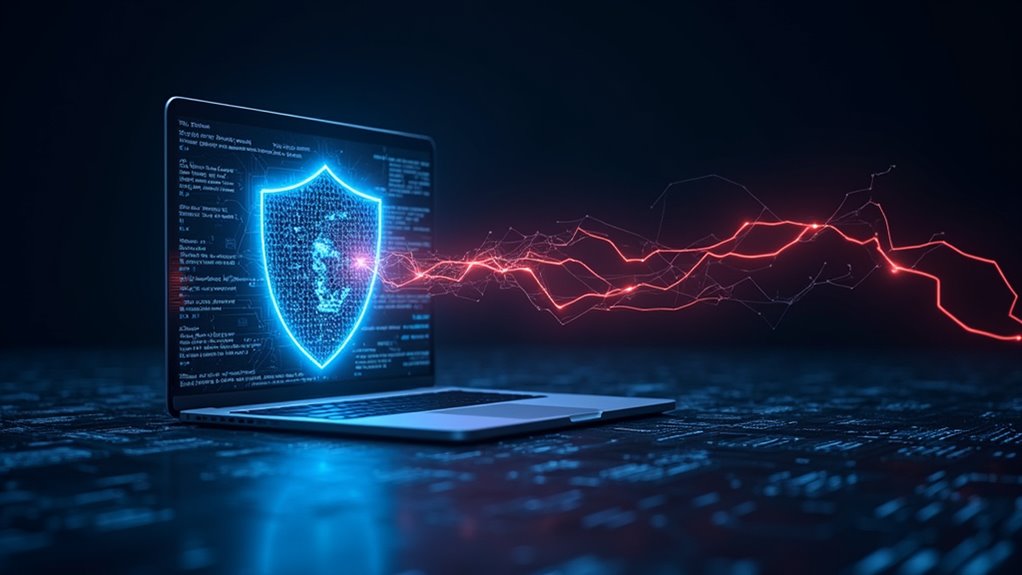AI systems can now crack common passwords in under 60 seconds, making your trusty “password123!” about as secure as a chocolate padlock. The threat is real—AI excels at pattern recognition and can predict how humans typically modify passwords. Even tech-savvy folks fall prey to AI-generated phishing scams with cloned voices and videos. With 80% of breaches involving compromised credentials, your outdated password habits are basically rolling out the red carpet for hackers.
Recent studies paint a grim picture: AI can crack over half of common passwords in under 60 seconds. That seven-character masterpiece you’ve been recycling since 2010? Consider it toast in about six minutes.
Meanwhile, developers embracing tools like GitHub Copilot (usage up 27% last year) are inadvertently leaking credentials at alarming rates—40% higher than their non-AI-using colleagues.
AI tools may boost productivity, but they’re turning developers into accidental security liabilities at an unprecedented rate.
The password problem isn’t just about brute force anymore. Today’s AI excels at pattern recognition, predicting how humans modify passwords and generating targeted phishing campaigns that could fool even your tech-savvy friend who “never falls for that stuff.” AI technology now enables voice and video cloning to impersonate trusted contacts, making phishing even more convincing.
Remember when we thought adding an exclamation point made passwords secure? *Those were simpler times.*
What’s particularly concerning is how AI systems themselves require broader permissions than traditional software. These digital assistants need wide-ranging access to be useful, creating a sprawling ecosystem of credentials that organizations struggle to track. Tools like PassGAN can generate and test millions of password combinations with frightening efficiency.
It’s like handing out house keys to increasingly clever robots without keeping a proper inventory.
So what’s a digital citizen to do? For starters, embrace the 15+ character password or passphrase (your favorite obscure movie quote might actually be useful now).
Deploy password managers religiously. And please—*please*—turn on multi-factor authentication everywhere you can.
The security landscape has fundamentally changed. When 80% of breaches involve compromised passwords, continuing to rely solely on them is like bringing a butter knife to a quantum computing fight. These vulnerabilities contribute to the approximately 80% of businesses worldwide that have experienced AI-targeted cyberattacks.
Our decades-old password habits simply weren’t designed for a world where AI can think like us—only faster and without coffee breaks.









